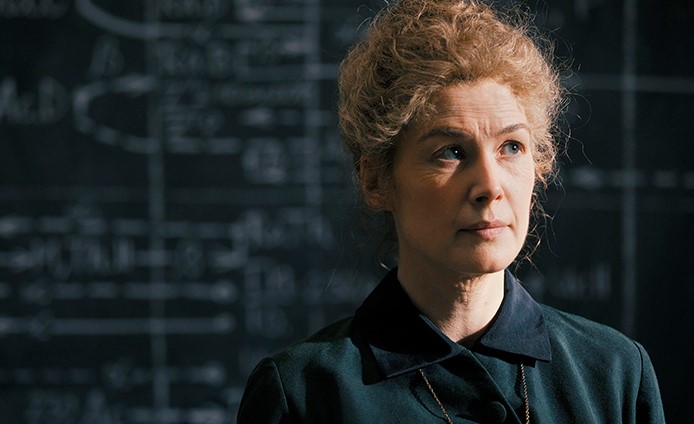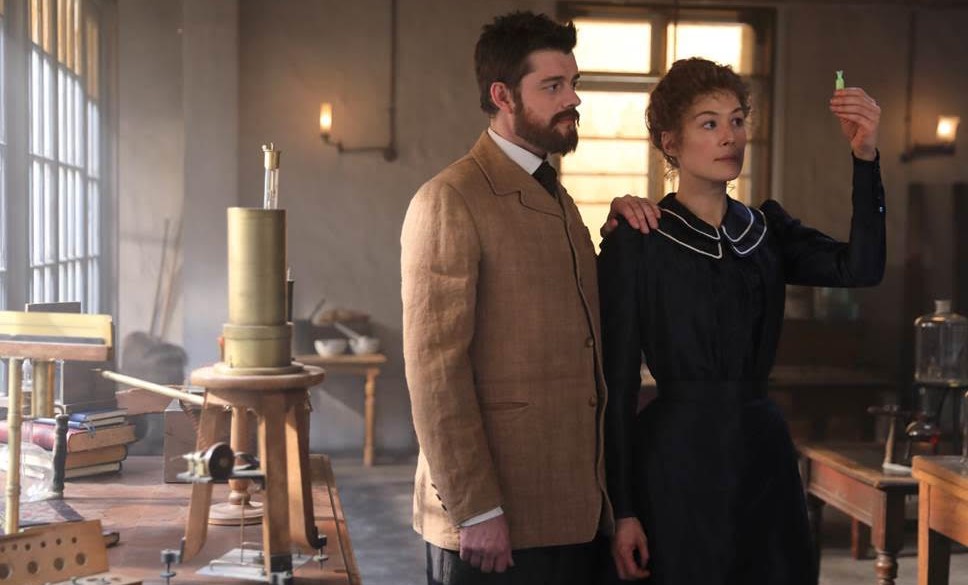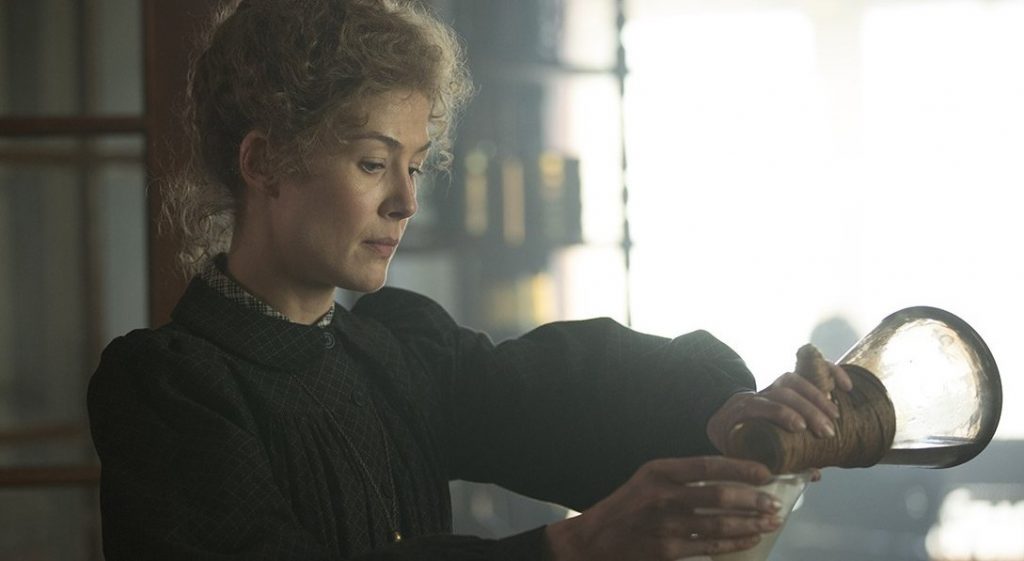
This title will be available for streaming on Amazon Prime as of Friday, July 24th.
One of history’s greatest scientific pioneers was physicist/chemist Marie Curie. In the early 20th century, this woman not only broke barriers for woman, but for the research field in general. In fact, the life of you or someone you know has been changed in one way or another as a result of her tireless work. As one might guess, spending the majority of your time devoting oneself to research can lead to all sorts of advances, as well as complications and tragedies. Radioactive tries to put some perspective on the woman’s life and her remarkable discoveries.

Believe it or not, there have already been a few movies over the years devoted to the figure, including a 1943 Hollywood adaptation and a French/Polish/German production in 2016. Each has its charms, but it’s fairly safe to say that none have quite done the subject justice. In fact, it may be that this person’s story isn’t particularly well suited to cinema. Whatever the reason may be, the latest attempt does correct a few problems present in earlier adaptations and certainly has some plusses. Yet, once again, it still doesn’t manage to overcome all of the story issues in order to tell Curie’s story in a dynamic way.
The movie picks up with the stubborn Maria Skłodowska (Rosamund Pike) working at the University of Paris, struggling to maintain funding for her lab research on uranium. Professor Pierre Curie (Sam Riley) takes an interest in her experiments, befriending the researcher. He eventually convinces the two to collaborate and finds space for her in his lab. Their work leads to the discovery of radioactivity using polonium and radium. The two also form a close bond that results in marriage. However, it isn’t all wine and roses. Over the course of her life, Marie Curie struggles with prejudices in her profession and also butts heads and with family members, including her daughter (Anya Taylor-Joy). And of course, the lead is forced to grapple with the unintended health effects caused by radioactivity.

Pike has an enormously difficult challenge in depicting a character who can be both heroic and remarkably difficult (particularly early on), even to the point of lashing out at others. The performer does an able job at making the character layered and complex. This movie also uses an unusual storytelling technique to try and keep things fresh, jumping ahead in time to various events in history that have occurred in part because of Curie’s research years earlier. No doubt this approach has been used to emphasize how her efforts were advanced over generations and led to both medical advancements and horrific disasters. There are also a few intriguing bits of exposition with microscopic visual enhancements that detail some of her theories.

It’s interesting and the cast do well under the circumstances, but there is still something dramatically lacking about the enterprise. Truthfully, I’m not entirely certain that the story of this famous figure really suits a cinematic narrative. We see a woman’s life and the various personal and professional struggles endured to make specific advancements. Yet at times, it just feels like a Cliff’s Notes version of her life, and the quick jumps between various emotional highs and lows are choppy. Certainly, Curie could be blunt and nasty at times, but the quick behavioral shifts and need to race the plot along towards the next tragedy makes it all feel too condensed.
The mystic finale integrates Curie into different time periods in order to come to a conclusion about where her work led, has been created to add drama and provide an emotional finish. It also attempts to illuminate how her decisions affected the world over the following century. The conceit is curious, but ultimately comes across as a bit of a simplification and doesn’t result in as teary-eyed a resolution as hoped for.
Radioactive features a committed lead performance. This reviewer also gives the picture marks for trying to condense an enigmatic person’s life and create an inspiring narrative out of their story. There are some good elements and a few interesting experiments, but as a whole the study is inconclusive and doesn’t deliver an entirely satisfying end result.


